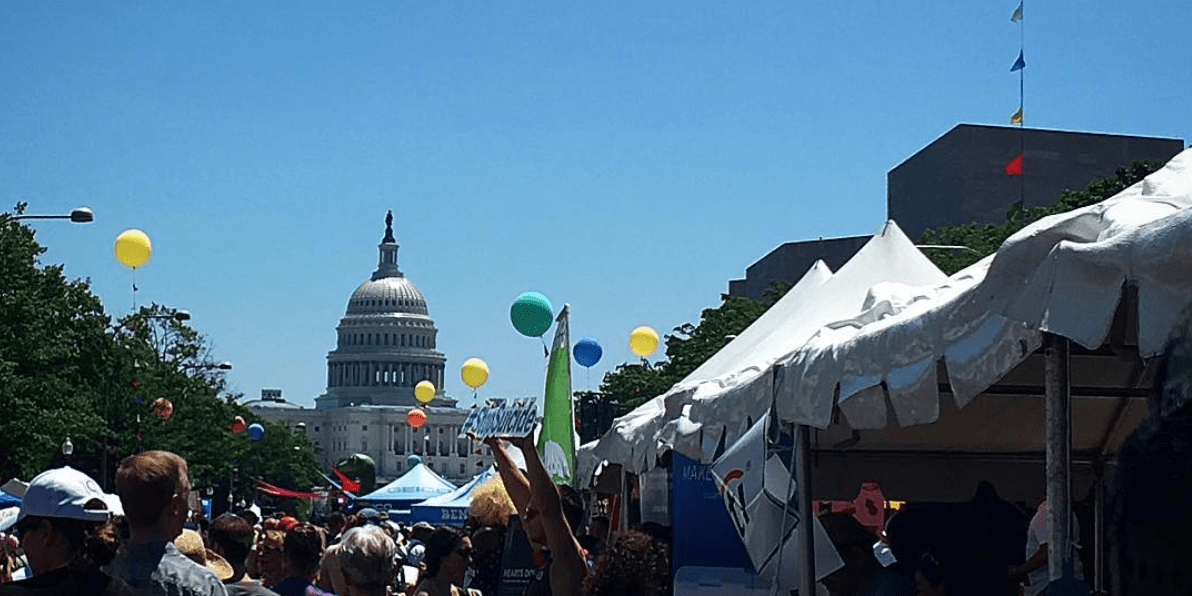
As the Washington Blade reported yesterday, Washington, D.C. Mayor Muriel Bowser and District Police Chief Peter Newsham have urged the LGBTQ community to “join all District residents in responding to a special appeal … for city residents to inform police of people they know who have illegal guns.” This is just the latest in a series of overtures to gay Washingtonians by Bowser as well as another case of gun reform efforts linked to LGBTQ Americans.
“Let Us Know Before They Kill Somebody”
The mayor’s special call for assistance followed “a five-day period beginning July 17 in which at least 19 people were shot in D.C.,” eight fatally. It also arrives just after the three-year anniversary of the Pulse massacre in Orlando, Florida, which killed 49 people and wounded more than 50 more on June 12, 2016 and launched a wave of gun control reform efforts among LGBTQ+ groups.
Mayor Bowser and D.C. police didn’t overtly lean into the anniversary for their framing, but they did point to overlaps between firearm use in homicides and the LGBTQ community’s susceptibility to targeting for violence more generally. “According to D.C. police records,” the Blade reported, “at least six transgender women and two gay men murdered in [the area] since 2000 died from gunshot wounds.”
Linking this approach toward removing illegal guns from D.C. streets to anti-LGBTQ violence may prove politically and instrumentally effective, but it certainly feels timely, arriving in the aftermath of other high-profile (but non-lethal) attacks on queer Washingtonians.
During Pride Month just a few weeks ago, a group of teenagers perpetrated an attack on a gay couple in the area of U Street NW, where several of D.C.’s popular gay bars are located. (Three teens were arrested later for assault and robbery.) In April 2018, two men were assaulted on 10th Street NW in another hate crime, among the 97 total reported anti-LGBTQ hate crimes in D.C. last year — nearly double the 2016 figure.
Unclear National Picture; More D.C.-LGBTQ Collaborations Moving Forward
On a national level, though, exact statistics on LGBTQ+ victims of gun violence are unclear. As UCLA’s Williams Institute reported in a 2018 publication, “the extent to which guns contribute to LGBT morbidity and mortality is currently unknown.” At the same time, data consistently show that “suicide attempts, intimate partner violence … and other forms of inter-personal violence occur at comparable or higher rates among LGBT people relative to the general population,” according to the Williams Institute report, all of which become more-lethal risks when firearms are available.
Nonetheless, Instinct reported on extensively on nationwide figures showing statistically significant increases in anti-LGBTQ violence over recent years, including “upticks” in identified anti-gay hate crimes. The nexus of LGBTQ activism and gun control advocacy is complicated, owing not just to difficulty parsing how gun violence affects queer Americans, but also to divisions among LGBTQ Americans on whether gun control is the proper policy aim at all. (In the aftermath of Pulse, after all, pro-gun LGBTQ groups like the Pink Pistols and related op-ed pieces in the New York Times decried calls for restrictions on firearms, instead preferring to arm and train queer Americans to defend themselves.)
https://www.instagram.com/p/ByfYzwphhQv/?utm_source=ig_web_copy_link
In any event, Mayor Bowser’s engagements with D.C.’s LGBTQ community have a long history. She has served as co-chair of the Mayors Against LGBT Discrimination coalition, was an early mover in banning official D.C. travel to North Carolina after the infamous trans bathroom bill in early 2016 and earned endorsements and myriad other accolades from prominent LGBTQ individuals and groups throughout her time in office. Notwithstanding today’s reports of Bowser rebuffing some D.C. activists (a story in which the mayor and D.C.’s city council opted not to add a further $3 million to the budget for the Mayor’s Office of LGBTQ Affairs), coordination on gun control policy is another example of a fruitful alliance.
(Source: Washington Blade)
